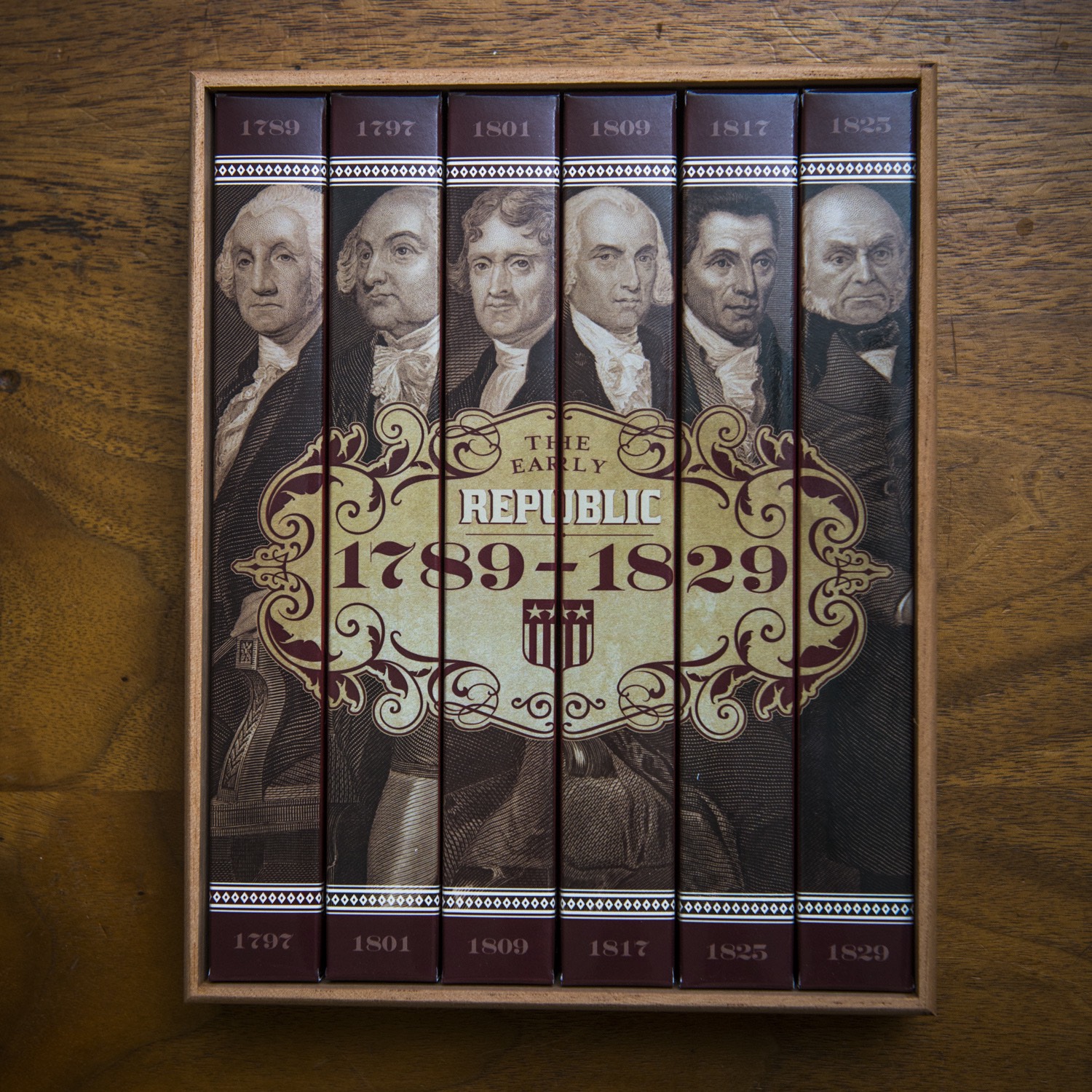James Madison
1809-1817
Vitola
Robusto
Size
50 x 5
Body
Medium
Wrapper
Connecticut
Binder
Indonesia
Filler
Cuban Seed – Ligero / Seco Piloto Cubano / Santo Domingo / Habano
President James Madison (1809-1817)
He could not get elected President today—too short (a slight 5’6”). He couldn’t get appointed to the Supreme Court—an original intent Constitutionalist (his original intent, in fact) and he never attended Harvard or Yale Law School, like all nine justices today did. He could not get elected to Congress—too honest. James Madison, the Sage of Montpelier, however, still stands tall as the chief architect of the United States Constitution, author of many of the Federalist Papers, and shaper of the Bill of Rights. He served with distinction as a four term Congressman and Secretary of State, had a rough time as our fourth President, but saw the nation through the crisis of the War of 1812. He ended life at the age of 85 in 1836, as the Rector of the University that he and his friend Thomas Jefferson founded.
“Little Jemmy” received the typical education that the oldest son (of twelve children) of a wealthy Virginia planter could expect: He studied under a Scottish tutor from age eleven to sixteen, attributing to him his love for and proficiency in learning. Two more years of study with a minister preceded his matriculation at Princeton College where he studied political philosophy and law under the college president, the Rev. John Witherspoon, a signer of the Declaration of Independence and one of the foremost scholars in America. Madison mastered Latin, Greek, Hebrew, logic and debate as well as history and philosophy and thus, his education was steeped in a Christian world-view steeped in the classics, though he kept his personal faith a matter of conjecture for outside observers.
In his first political endeavors Madison joined the Committee of Safety, a patriotic defense group, and when elected to the House of Burgesses, he worked closely with his friend Thomas Jefferson, and fought especially for religious freedom. He served in the Congress and the Virginia House during the war. In 1786 the brilliant and now experienced Madison attended the Annapolis Convention, and then the Constitutional Convention. He came prepared with what became known as “The Virginia Plan” and suggestions for a bi-cameral legislature, as the representatives determined to create an altogether new form of government.
Madison had a realistic view of man’s fallen nature and worked through various ways to hedge in the powers of civil government. He endorsed federalism, separation of powers, checks and balances. No one loved freedom more than Madison, and establishing safeguards against government tyranny always engaged his attention. He fought the hardest in Virginia for ratification of the Constitution, having to go toe to toe with Patrick Henry and face the opprobrium of George Mason, who helped compose the document but opposed its ratification for lack of a Bill of Rights. He wrote powerful arguments for the various articles of the document to be published as The Federalist.
Having helped bring about the Constitutional Republic, Madison served in Congress for eight years, and co-authored the Kentucky and Virginia Resolutions, advocating nullification. His service as Secretary of State under his friend Jefferson, engaged him in the negotiations for the Louisiana Purchase and maintaining neutrality in the conflicts between France and England. By the time of Madison’s election to the presidency, the Federalist Party was all but dead and with only one political party (but several factions) some label the period as “the era of good feelings.” Madison presided over the war with Great Britain in 1812, a very unpopular and probably ill-advised conflict. New England even toyed with the idea of secession from the Union in 1814.
Madison left the presidency in 1817, his succession by fellow-Virginian and Jeffersonian, James Monroe, was secure, as were his lifetime achievements. He worried about his finances and regretted various writings and letters. He supported the American Colonization Society as a possible solution to the slave system, though he remained dependent upon it and had to sell twenty-five percent of his workforce to alleviate debt. Madison and his wife Dolly never had any children, leaving his fortune to his wife and nephew. Today, his home at Montpelier is restored to its former splendor. Our shortest and (some believe) most important founder seems to remain in the shadow of his mentor and friend, Thomas Jefferson of Monticello and the other childless founder, the Father of his Country, George Washington.
Quietly sophisticated, just like Madison, this is perfect medium-bodied smoke … smooth & well-balanced.



